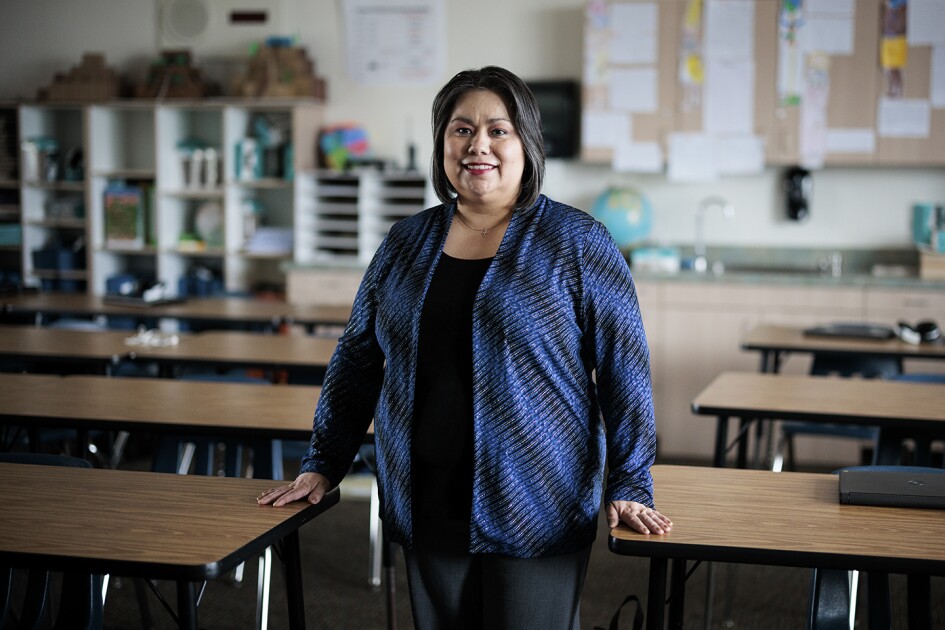Washington--C. Emily Feistritzer, a researcher and writer who has won national attention for reports on and criticism of the teaching profession, has irked some teachers and administrators by polling them on their sexual habits and their attitudes towards abortion, President Reagan, unions, mercy killing, and other personal topics.
Questions on these subjects are part of a survey--partially financed with a $72,461 Education Department grant--that Ms. Feistritzer is conducting to establish a “profile on teachers in the United States,” she said last week.
Ms. Feistritzer declined to say who developed the survey instrument or how the full cost of the survey was being underwritten.
“Some of the questions caused my eyebrows to go up,” said Mary Hatwood Futrell, president of the National Education Association, in an interview. “I question what those questions have to do with a teacher’s performance in the classroom.”
Educators in at least three states have complained about the questions to People for the American Way, according to Barbara Parker, a staff member of the civil-liberties group.
Ms. Feistritzer, who wrote the recent report of the Carnegie Foundation for the Advancement of Teaching on the condition of the profession, publishes a newsletter, ncei Reports, that covers education policymaking in the federal government; previously, she published Education Department Weekly. She regularly contributes to forums on education reform.
‘Profile’ of Teachers
Ms. Feistritzer defended her survey and said she was surprised by the indignation provoked by some of the more sensitive questions.
“It is not a sex survey. It is not designed to probe into the sex lives and private lives of teachers,” said Ms. Feistritzer. “I’d probably fill it out,” she said.
The survey, which is being conducted by her for-profit corporation, National Center for Education Information, seeks anonymous responses from about 2,000 teachers to questions dealing with their personal and professional lives, she said. It was mailed recently at random to principals, who are to distribute it among some faculty members.
“Your cooperation is crucial in our getting a better understanding of teachers in the United States,” she wrote in a brief introduction to the 84-question written survey.
She said in an interview that two-thirds of the questions--including those pertaining to sensitive topics--have been widely used on other ''respectable polling surveys.” The other one-third of the survey queries concern the “day-to-day occupation of teachers.”
Two examples of the non-teaching-related questions that have aroused some concern are:
“About how often did you engage in any of the following activities during the past year? ... Watch television ... Read magazines ... Attend parties ... Work in the garden ... Engage in sexual activities.”
For each activity cited, respondents were asked to note their level of involvement; choices ranged from “every day” or “almost every day” to “never.”
“If abortions were made illegal under just about all circumstances, do you think the following would or would not happen? ... Many more women would end up with unwanted children ... The moral tone of America would improve ... Wealthy women would still be able to get abortions that are safe.”
A spokesman for the Gallup Organization, the polling firm, said that questions of a personal nature--such as opinions on premarital sex--are fairly common on both national surveys and issue referenda. But she added that Gallup has “never” asked a question about frequency of sexual relations.
The survey also asks several questions about political affiliation and attitudes, patriotism, and whom respondents voted for in the last Presidential election. It asks respondents to name their union affiliation and includes questions on attitudes toward unions.
In addition to a number of questions involving teachers’ attitudes toward their profession, the questionnaire inquires about respondents’ religious practices and their attitudes toward religion.
Department Response
According to Education Department officials, Ms. Feistritzer did not submit the questionnaire for review by the department, nor did she indicate the breadth of the questions when she applied for and received a fiscal 1984 grant from the Secretary’s discretionary fund. Originally $98,000, the amount was later reduced to $72,461 because of the school-desegregation dispute between the Chicago Board of Education and the Reagan Administration that affected the discretionary fund.
A department official who requested anonymity commented that the department does not know whether the final survey results will be useful to the government. But he said that the grant was made following a peer-review panel recommendation, so “apparently it appealed to the reviewers.”
Asked to comment on the matter, Ms. Feistritzer said, “I do a newsletter, which puts me in a real bind. We haven’t done a story on it yet."--jh







